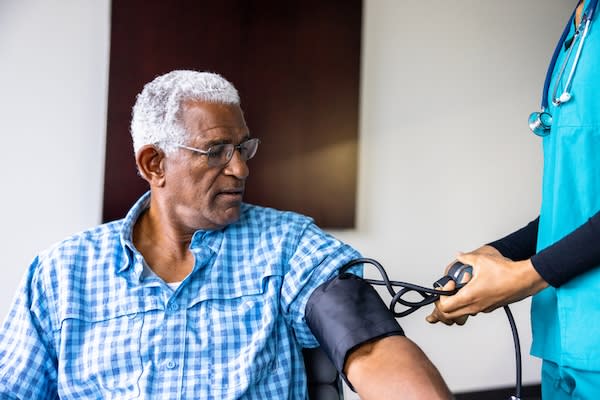5 must-know breast cancer facts
[5 MIN READ]
In this article:
-
Regular exercise and a healthy diet can reduce your risk of developing breast cancer.
-
Regular annual screenings should start at age 40 for women with an average risk of breast cancer. Women with a higher risk should talk to their doctor about starting screening earlier.
-
Hear from Dr. Lorena Gonzalez, who shares valuable input from her perspective as both a breast surgeon and a breast cancer survivor.
Lorena Gonzalez, M.D., knows breast cancer from two distinct perspectives—as a skilled breast surgeon and as a survivor herself. At age 37, Dr. Gonzalez was diagnosed with stage IIB triple-negative breast cancer. “I went through chemotherapy, surgery and then radiation,” she explains. “Because I tested positive for a genetic mutation, I elected to have bilateral mastectomies.”
That, in turn, brought about a career redirection. Dr. Gonzalez left her practice as a vascular surgeon and retrained to become a breast surgeon.
Here are five critical breast cancer facts from Dr. Gonzalez shared with us:
1: There are breast cancer risk factors you control.
“There are risk factors you can modify,” says Dr. Gonzalez. “Regular exercise and eating a healthy diet are known to reduce both risk of getting breast cancer and of its recurring. And, of course, practicing abstinence from smoking and moderate alcohol intake—no more than two or three glasses of wine a week.”
She also cautions against the extended use of hormone replacement therapy in menopause, especially estrogen-progesterone combination therapy.
2: There are risk factors you don’t control. Among the factors that increase breast cancer risk is this obvious one: being female. Starting menstruation before age 12 and entering menopause after age 50 add risk as well. Never having given birth also increases your chances of developing breast cancer, Dr. Gonzalez notes. And it’s all for the same hormonal reason: your breast tissue’s lifetime exposure to your body’s naturally produced estrogen.
3: Screenings are really, really important. “We have mammography now that’s so good at early detection that you can potentially catch breast cancer early enough that you can de-escalate treatment. For example, you may not need chemotherapy,” says Dr. Gonzalez.
But early detection works, she emphasizes, only if you go for regular annual screenings starting at age 40.
4: Be aware of your own individual risk. The much-cited lifetime breast cancer risk of 1 in 8 women isn’t meaningful for making personal decisions. Screening procedures are different for average-risk and high-risk women, so it’s important to work with your doctor to assess and understand what your unique profile is.
5: The care decisions are ultimately yours.
“I’m about empowering the patient to make her own decision,” says Dr. Gonzalez. For a high-risk patient, especially one with a genetic mutation, the decision may involve a prophylactic mastectomy. For a newly diagnosed patient, it may be the choice between a mastectomy and a lumpectomy. “The best thing we can do is to provide education,” she says.
Mammograms are one of the most important tools doctors have in breast cancer prevention and early detection. Our goal at Providence is to provide safe and accurate mammograms to help detect breast cancer in its earliest, most curable stage.
Contributing caregiver
Lorena Gonzalez, M.D., is a breast surgeon with City of Hope - South Bay.
Find a doctor
If you are looking for a Providence provider, you can search for one who’s right for you in our provider directory.
Download the Providence app
It’s all in the app: easily stay connected with Providence and your health. With the Providence app, you can schedule appointments, have virtual visits from the comfort of your own home, get health recommendations personalized for you, access your health records and so much more. Learn more and download the app.
Related resources
There's always something new to learn about breast cancer
Choosing knowledge helped one woman take charge of her health
Why regular health checks are vital for women in their 40s
This information is not intended as a substitute for professional medical care. Always follow your health care professional’s instructions.

